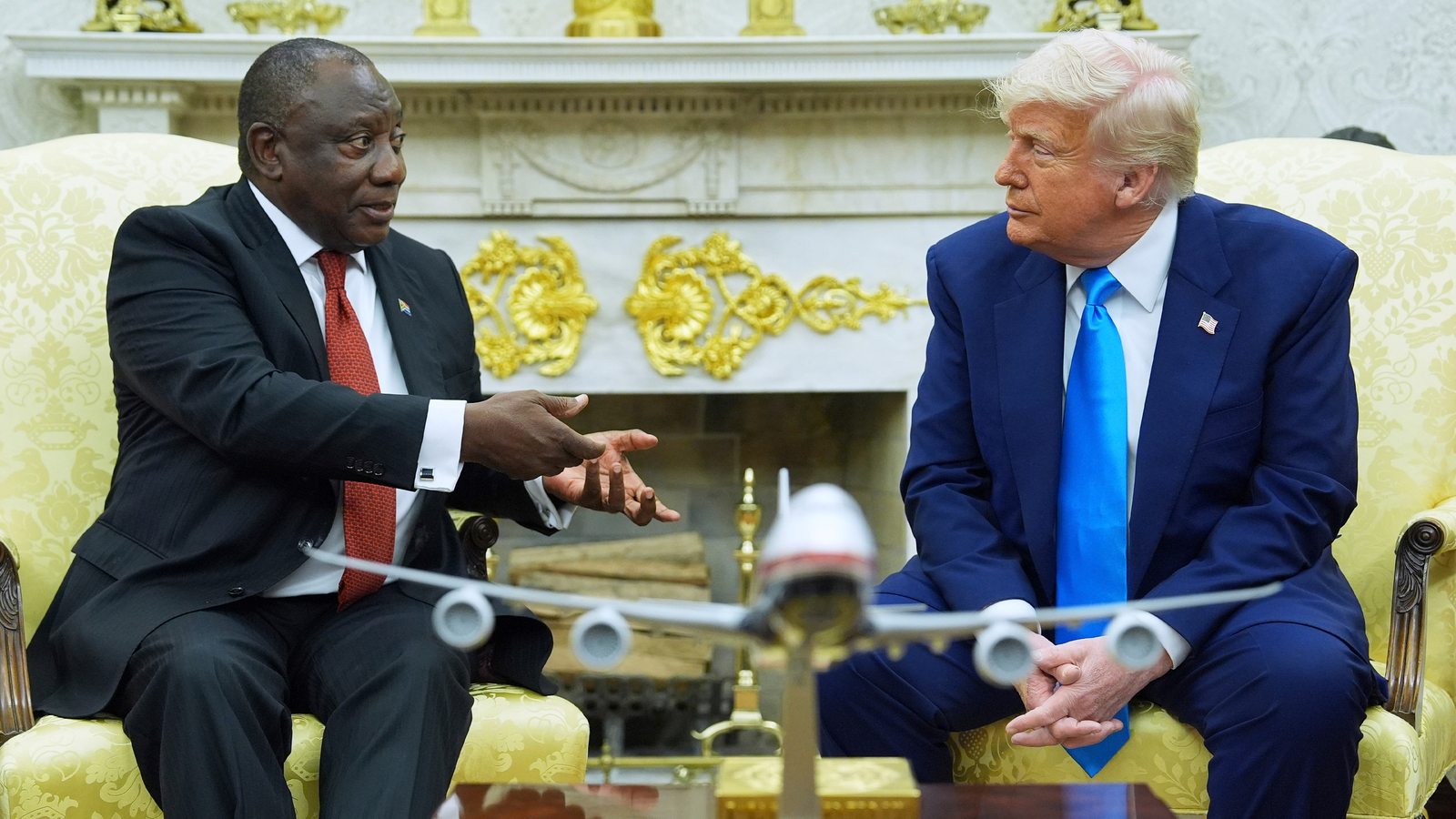
U.S. President Donald Trump confronted South African President Cyril Ramaphosa with allegations of anti-white persecution during a tense meeting at the White House on Wednesday. Trump claimed that white South Africans were victims of mass killings and land seizures, a narrative that South African officials vehemently deny.
The meeting, which began with a cordial exchange about golf and the presence of South African golf legends Ernie Els and Retief Goosen in Ramaphosa’s delegation, quickly shifted as Trump presented a video and printed articles he said demonstrated the persecution of white South Africans.
“People are fleeing South Africa for their own safety. Their land is being confiscated, and in many cases, they’re being killed,” Trump asserted during the Oval Office meeting, showing the video featuring white crosses that he claimed marked the graves of thousands of white people.
Ramaphosa, who arrived with hopes to discuss trade and critical minerals, remained composed during the presentation, stating that he had not seen the video before and would investigate its origins. He countered Trump’s claims by noting that the majority of victims of crime in South Africa are Black, though crime rates remain high across all demographics.
Trump cut him off, asserting, “The farmers are not Black.” He continued flipping through printed articles, describing instances of violence against white South Africans, repeating “death, death” as he showed each page.
South Africa’s government has long rejected accusations of widespread anti-white violence. While crime remains a significant issue, particularly among farmers, the country’s land reform policies aim to redress historical inequalities caused by apartheid. These reforms allow for expropriations without compensation under specific conditions, but no such expropriation has occurred yet, and any action can be challenged in court.
Trump, who has previously criticized South Africa’s land reform laws and the country’s legal actions against Israel, has also canceled aid, expelled the South African ambassador, and suggested offering refuge to white Afrikaners, based on claims of racial discrimination that South Africa dismisses as baseless.
During the meeting, South African business tycoon Johann Rupert, also part of Ramaphosa’s delegation, supported the president’s stance. Rupert acknowledged South Africa’s crime problem but pointed out that many Black South Africans are also victims. He suggested that increasing technology, such as Elon Musk’s Starlink, could help combat crime across the country.
Ramaphosa, for his part, focused on the broader trade issues, with the U.S. being South Africa’s second-largest trading partner. However, South Africa faces a 30% tariff under Trump’s suspended “Liberation Day” regime, making Ramaphosa’s push for a favorable trade deal a key priority during his visit.
Despite the tensions, both leaders ended the meeting with formal remarks, but the underlying dispute over racial issues and trade remains unresolved.
